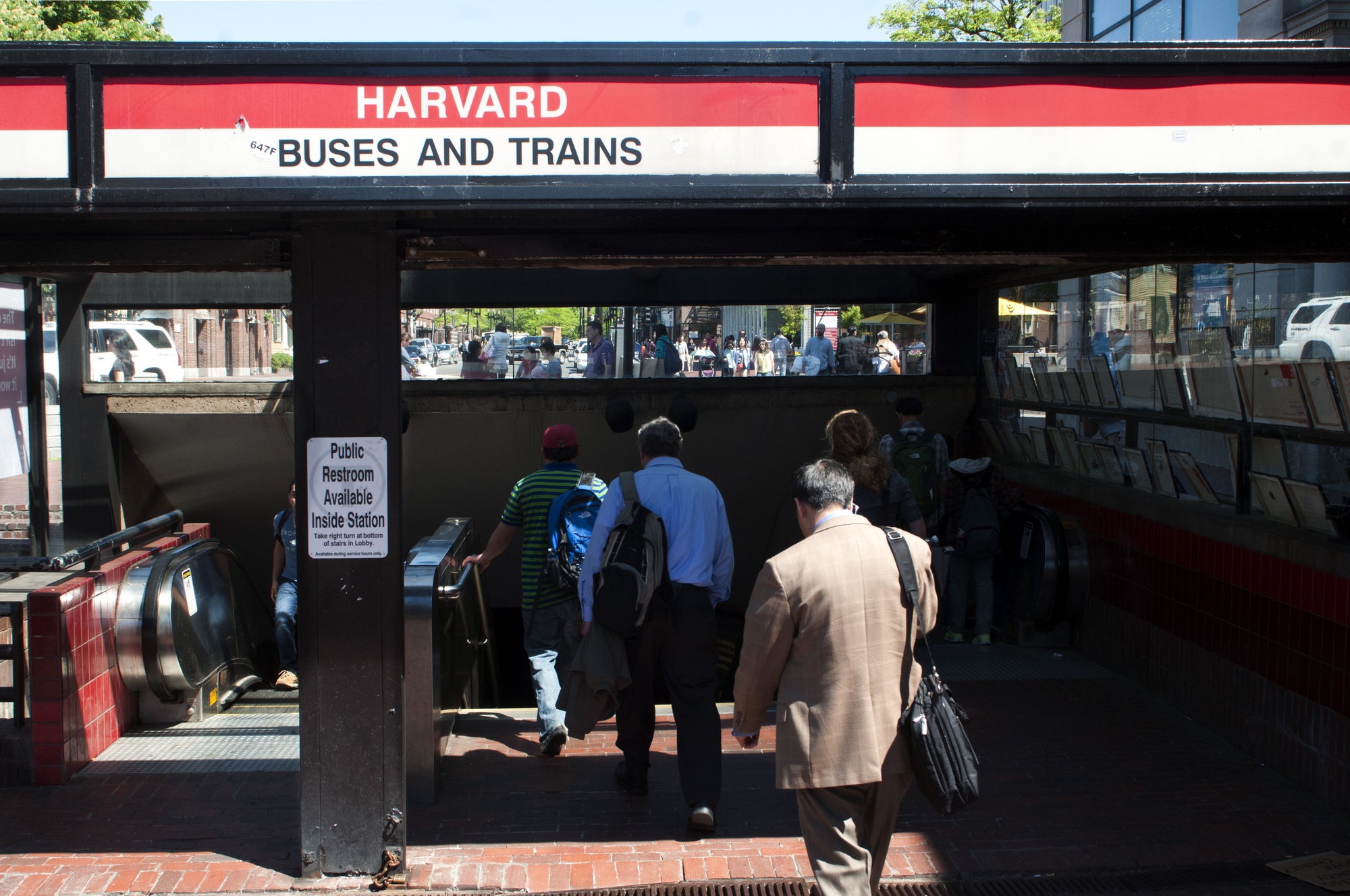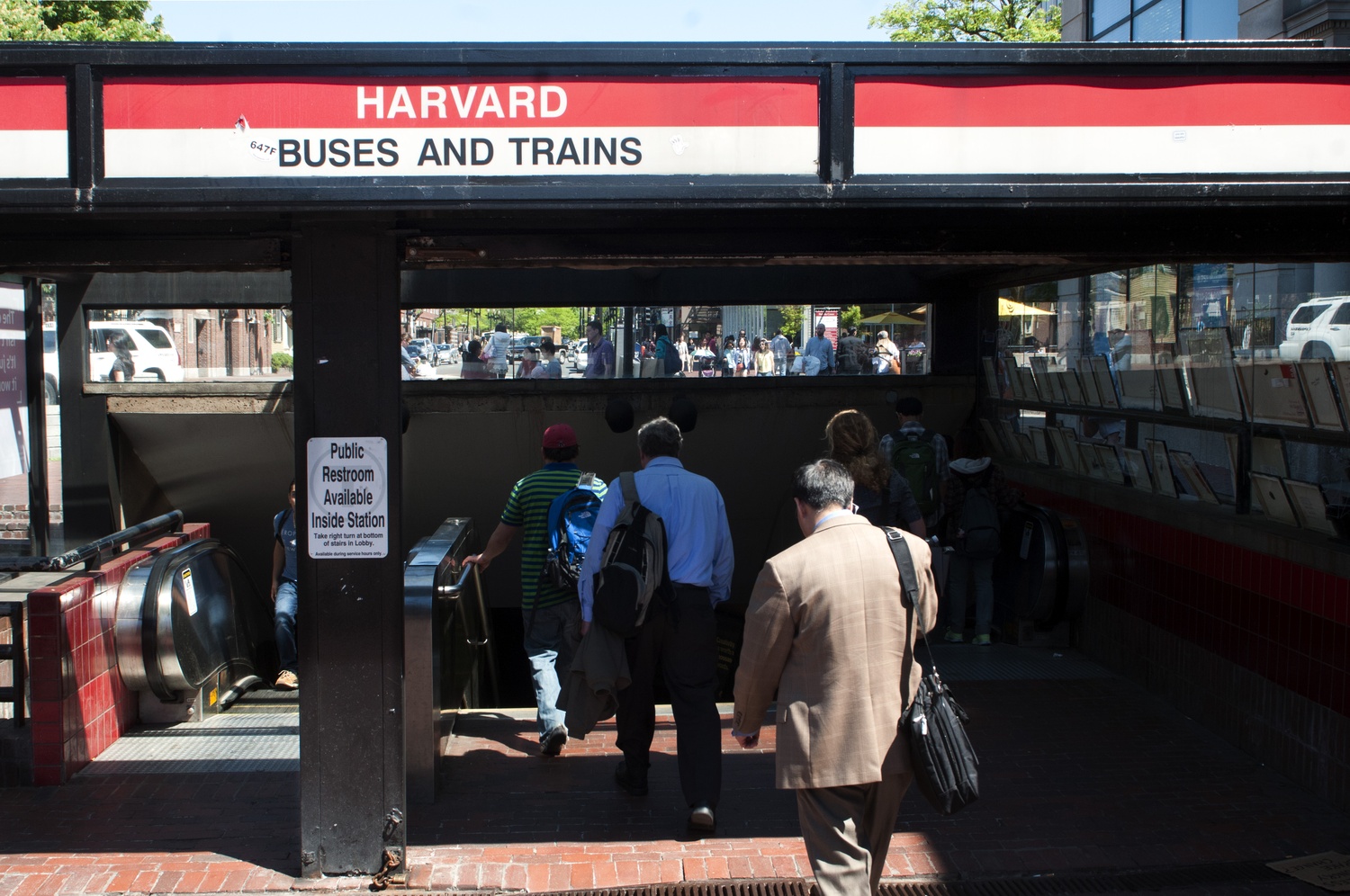
News
Summers Will Not Finish Semester of Teaching as Harvard Investigates Epstein Ties

News
Harvard College Students Report Favoring Divestment from Israel in HUA Survey

News
‘He Should Resign’: Harvard Undergrads Take Hard Line Against Summers Over Epstein Scandal

News
Harvard To Launch New Investigation Into Epstein’s Ties to Summers, Other University Affiliates

News
Harvard Students To Vote on Divestment From Israel in Inaugural HUA Election Survey
Students, Alumni Concerned Over Potential MBTA Cuts

Students and alumni expressed concern for the potential shuttering of MBTA late night weekend service following last week’s public meeting at Cambridge City Hall.
In an effort to reduce the MBTA’s budget deficit, the regional public transit organization has introduced proposals to eliminate or privatize T service from 12 a.m. to 2 a.m. on weekends. Last week’s meeting was one of many public forums scheduled in and around Boston to discuss the proposal.

The proposed changes would disproportionately affect the Harvard Square T stop more than other MBTA stations. An MBTA report from last February found Harvard Square was the 4th busiest station during late night hours.
Jessie J. King ’19, who uses the T frequently, praised the current late night service program.
“A lot of students use it as a more safe, cost efficient way to hang out with their friends on the weekends,” she said.
Ilian A. Meza ’17 said that when going out or traveling to concerts in Boston, taxis and ride-sharing services such as Uber were considerably more expensive than riding the MBTA.
“I don’t use the T that often, but when traveling to Boston the T was definitely more affordable,” Meza said.
Susan J. Ringler ’74, an advocate for late night weekend MBTA service, said the late night service is crucial, not only for the university population, but also for those from around the greater Boston area.
“I think it affects a lot of people in the University community,” she said, citing the potential difficulties cuts would create for those who work in Harvard Square. “This is not just a student population, it's about the backbone of our city.”

Ringler said she was concerned the MBTA’s public meeting held on Jan. 20 addressing potential changes was hosted at an inopportune time. A large portion of the student population was still in transition back to their respective campuses, precluding them from voicing their opinions regarding the MBTA’s proposed cuts.
“They held these public meetings before all our students got back into town, they didn’t advertise them very well, and they presented a slide presentation that showed they had pretty much made up their minds that it was too expensive and they had to cut it,” Ringler said.
Dalen L. Ferreira ’19 also expressed skepticism at the proposed cuts’ ability to solve the MBTA’s monetary troubles.
“I think there would be much better ways to save money,” he said.
—Staff writer Joshua Florence can be reached at joshua.florence@thecrimson.com. Follow him on Twitter @JoshuaFlorence1.
—Staff writer Samuel Vasquez can be reached at samuel.vasquez@thecrimson.com. Follow him on Twitter @svasquez14.
Want to keep up with breaking news? Subscribe to our email newsletter.
